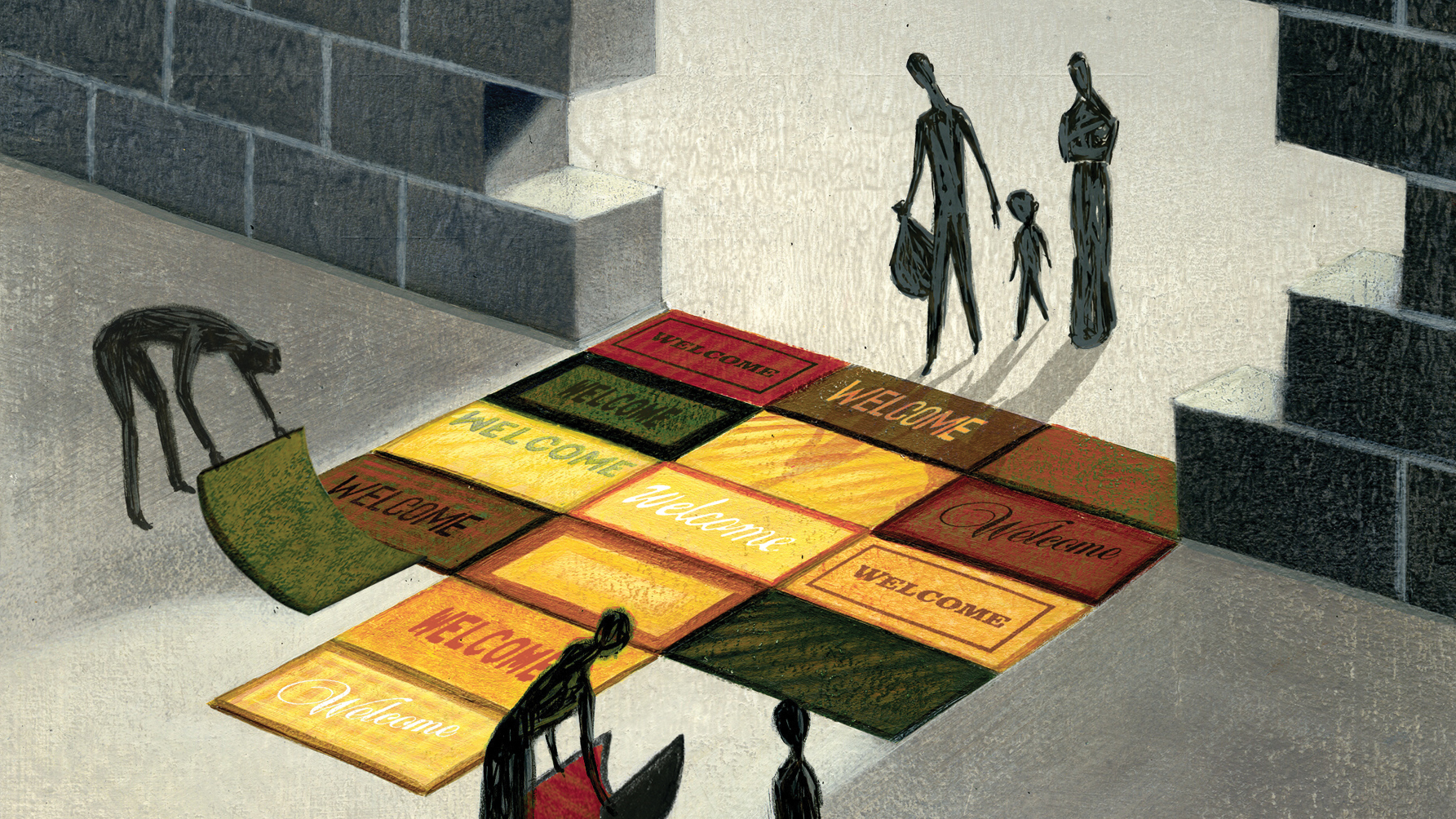The global refugee crisis reveals not only the dangerous plight of millions of men and women, boys and girls, but also the troubling moral plight of America. It also provides an opportunity for Christians to shine the light of Christ’s love brighter than ever.
As for our country’s moral plight: We once prided ourselves on endorsing the words of poet Emma Lazarus, who wrote the famous sonnet inscribed on the Statue of Liberty: “Keep, ancient lands, your storied pomp! . . . Give me your tired, your poor, Your huddled masses yearning to breathe free, the wretched refuse of your teeming shore. Send these, the homeless, tempest-tossed to me, I lift my lamp beside the golden door!”
Yet the more we learn about our history, the more we recognize this is more hope than reality. Examples abound, but here are two: the Oriental Exclusion Act (1924), which prohibited most immigration from Asia, including foreign-born wives and the children of American citizens of Chinese ancestry; and United States vs. Bhaghat Singh Thind (1923), in which the Supreme Court ruled that Indians from the Asian subcontinent cannot become US citizens.
The entire picture is complex, to be sure: For example, nearly 6 million immigrants were welcomed between 1911 and 1920.
Unfortunately, US immigration policy today grants only about 1 million permanent visas a year (with about 70,000 for refugees). This might sound like a lot, but it represents but 0.3 percent of our population of 321 million. Between 1911 and 1920, when the total population hovered around 100 million, the United States welcomed an average of 600,000 immigrants each year. This means that over the past 100 years, immigrants and refugees have become a declining portion of the overall American population.
In short, our nation has become increasingly stingy about welcoming the tired, the poor, the huddled masses yearning to breathe free.
This becomes especially apparent and scandalous when we compare the US response to that of other nations. In September, Germany announced it will welcome some 800,000 refugees this year. Chancellor Angela Merkel said, “The right to political asylum has no limits on the number of asylum seekers.” And, “As a strong, economically healthy country, we have the strength to do what is necessary.”
But here, in the wealthiest nation in world history—with a population four times the size of Germany’s—we debate whether to up the number of refugee visas from 70,000 to 100,000 per year. Despite ill-advised comments from leaders like evangelist Franklin Graham (“We should stop all immigration of Muslims to the [United States] until this threat with Islam has been settled”), most evangelicals are committed to the sojourner in our land—Muslim or Christian, documented or not, immigrant and refugee alike.
According to a recent LifeWay Research study, 60 percent of us believe our nation should find a way to help undocumented workers gain citizenship or some form of permanent residence. When it comes specifically to the refugee crisis, a subhead on the webpage of World Relief DuPage/Aurora, Illinois, which serves 5,500 immigrants and refugees a year, describes evangelical reality: “We welcome refugees.”
That’s the only conclusion one can reach given the myriad of Christian nonprofits helping, or advocating on behalf of, refugees. The evidence shows that countless believers in local churches greet refugees at the airport, deliver welcome packets, furnish apartments, find jobs, teach English and reading, and visit and befriend newcomers for months.
In some quarters of American life, evangelical Christians are viewed as fearful and xenophobic—afraid of “the other.” Perhaps in a few cases, which happen to make the news. But in fact, US evangelical churches are refugees’ best friend. If anyone looks fearful and xenophobic, it is the federal government and its broken immigration policies.
This is not to deny the real political, social, and economic challenges of welcoming more sojourners. This is not to suggest that we open our borders without any security checks. It is to refuse to let the gods of fear and security dictate how we respond.
Nor do we mean to suggest our churches are doing all they can for the sojourner. Our resettlement agencies, here and abroad, need more money, more volunteers—more sponsorship from local churches—to face the burgeoning refugee crisis.
This is an unparalleled opportunity to love neighbors here and abroad, and to showcase the beauty of the gospel that proclaims good news to the poor, liberty for those stuck in refugee camps, and a new life for those fleeing from oppression, so that those “yearning to breathe free” can breathe easily.
Mark Galli is editor of Christianity Today.










